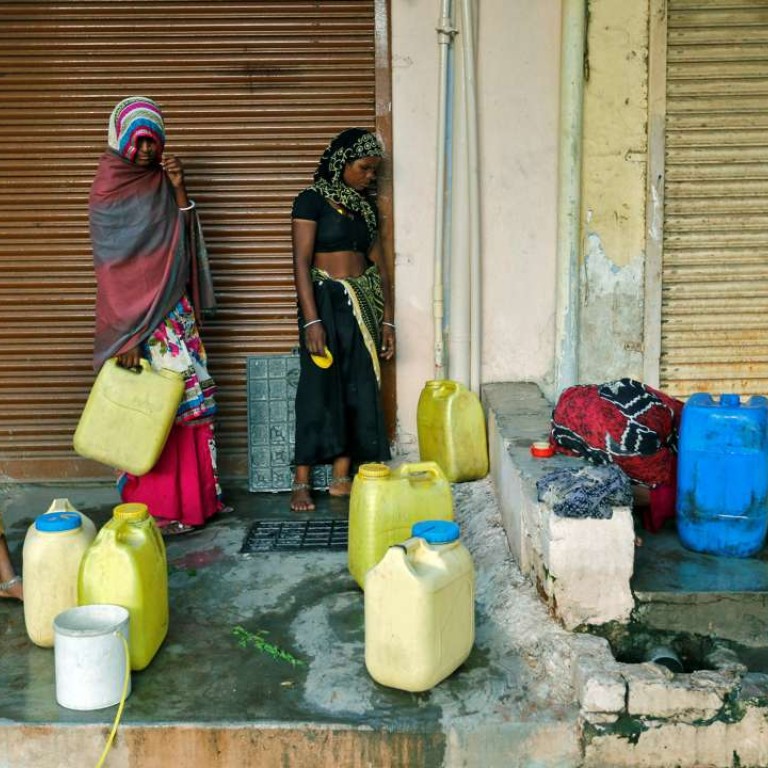
Two steps to lighten the load of Asia’s poor women
Trini Leung says improving public services is one way to greatly ease the burden for the carers who do the bulk of the housework while holding down jobs, while another is to pay a living wage
Economic growth is always welcomed with open arms, but what if I said that the much-hailed progress we have seen in Asia over the past couple of decades was built on injustice against women?
According to the International Monetary Fund, the region’s economy grew at an average of 6 per cent a year between 1990 and 2015. But this growth was made possible in part by countries building their global competitiveness on the backs of poor women, who were paid low wages and made to work in substandard conditions.
Be wary of effusive praise for women’s achievements – gender inequality is still entrenched in Hong Kong
It is disturbing to see such little progress in women workers’ livelihoods compared with 30 years ago, when I began working in this area. We must find the missing link between women’s development and overall growth.
Our new report, “Underpaid and undervalued”, recommends two policies that will alleviate gender inequality and have a knock-on effect on economic inequality: redistributing women’s care work, and adopting the idea of the living wage.
Care work, because it is tied to the definition of womanhood and its narrative of self-sacrifice, is unpaid, undervalued and unrecognised. It sustains the labour force that allows the economy to thrive in the first place. Care work typically adds between two and four hours to a woman’s day, resulting in the so-called women’s double day.

Women’s quest for equality will remain out of reach until we begin to respect the value of domestic work
On average, women in Asia do 2½ times more unpaid care work than men – this includes tasks such as cooking, cleaning, washing clothes, fetching water and firewood, and caring for dependents. If we were to put a value on women’s care work in terms of time spent on it, globally, it would equate to US$10 trillion a year.
It is disturbing to see such little progress in women workers’ livelihoods compared with 30 years ago
Governments should invest in public services that reduce and redistribute unpaid care work. Improved access to sanitation, electricity, clean water supplies and transport reduces “time poverty” for women and girls, according to a study by the Asian Development Bank. Increased access to education will also help women compete in the labour market for high-paying jobs.
Spending on social services such as health care and pension schemes that could help reduce the burden on women accounts for just 10 per cent of South and East Asia’s gross domestic product. Unfortunately, governments may not be able to put as much money into the care economy as they should, given the revenue shortfall as a result of tax holidays, exemptions and incentives for big business.
In 2012, government revenue accounted for 10.7 per cent of GDP in South Asia, and 10.9 per cent in East Asia and the Pacific, compared with an average of close to 20 per cent for Europe and Central Asia.
Governments must impose progressive taxes on corporations and individuals to free women from the stranglehold of unpaid care work, and give them the same footing as men to aspire to and hold down paid jobs.

No one happy as Hong Kong minimum wage raised to HK$32.5 today
Second, governments and businesses can trade the practice of paying minimum wages for living wages. A living wage factors in expenses for suitable housing, education, food, transport and health. It allows a worker to set aside a little extra for unforeseen events. Importantly, it is adjusted for inflation.
Only a living wage will allow women to work their way out of poverty. Our research found that jobs in profitable supply chains do not necessarily translate into workers lifting themselves out of poverty, no matter how hard they strive.
Poor women, discriminated against twice, by poverty and their gender, stand to gain from government investments that redistribute care work and businesses adopting a living wage.
With these changes, women can be empowered and serve as the backbone of the economy, thus realising the ideal behind the saying that “women hold up half the sky”. In this way, they should also be able to enjoy half the sky, too.
Trini Leung is director general of Oxfam Hong Kong
